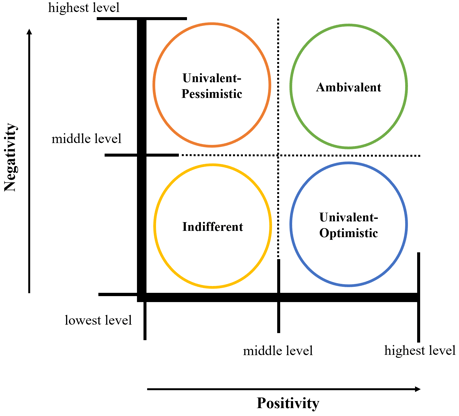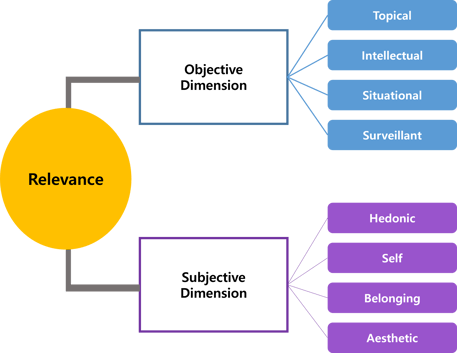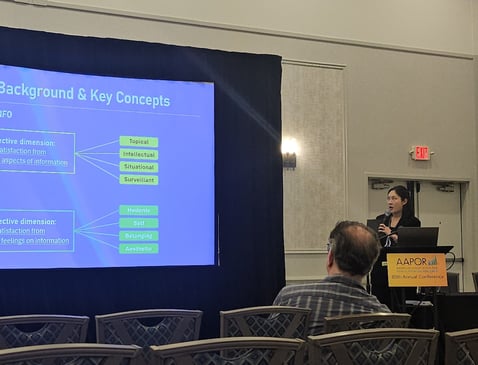Vigilant Mind, Visionary Research
Connecting Media, Law, and Healthcare to Gain Deeper Insights into the World of Uncertainty
Hello, and welcome—I’m Gilly An.
I study how people think and feel about emerging technologies — especially ones that both excite and unsettle us, like artificial intelligence or cutting-edge medical treatments. My focus lies in the psychological backbones of public opinion: what fuels curiosity, what magnifies fear, and how these shape the way we engage with new technology information.
But I believe these questions shouldn’t stop at communication. They demand legal and ethical perspectives too. That’s why I’ll be entering law school, to explore how policy, media, and public perception must work together — especially in a world where innovation moves faster than understanding.
Welcome to my research — where the rooster still crows, and the search for better questions never stops.




Meet me at WAPOR and AAPOR 2025!
I will be attending the annual WAPOR and AAPOR conferences held in St. Louis from May 12 to 16, 2025. I am excited to meet many scholars and professionals in the field of public opinion research and learn about the latest innovations and developments in their research.
During the AAPOR portion of the conferences, I will be presenting on characteristics of public opinion on artificial intelligence among South Koreans:
🗓️ Wednesday, May 14, 2025
🕓 3:45 – 5:15 PM
📍 Regency B (St. Louis Union Station Hotel)
🗣 Session: Attitudes toward AI Around the World
🎙 Title: Breaking Down Public Opinion on Artificial Intelligence Issues through the Application of Need for Orientation in Agenda-Setting Theory
I warmly invite you to attend the session and join the discussion.
If you have any questions or would like to connect, please feel free to reach out—I’d love to hear from you!
👉Do you want to see more details about my presentation?
Gilly An's Research Journey
My academic journey began with a deep fascination with agenda-setting theory—a framework that revealed the forces behind how public opinion takes shape.
In agenda-setting research, we usually look at how mass media influences public opinion and study the mechanisms behind that influence. What really caught my attention was the concept of Need for Orientation (NFO)—a motivational factor that explains why some people are more susceptible to media effects than others.
The idea is this: the more interested people are in a particular issue (known as relevance within NFO) and the more uncertainty they feel about it, the more likely they are to rely on media to make sense of that issue. I found this interaction between relevance and uncertainty incredibly compelling. It made me wonder—can we really explain media effects using just these two factors? And if not, how could we rethink or even reframe the concept?
Those questions stuck with me, eventually leading me to re-conceptualize Need for Orientation, digging into how well this new framework could explain how media influence users' perceptions and opinions—especially as compared to the traditional framework.
I’ve continued to explore how Need for Orientation plays out in real-world opinion dynamics—especially around issues like cancer and artificial intelligence (AI).
Why those topics? Because both directly touch upon the question of life and death. This naturally draws public attention, but, at the same time, both issues are complex and constantly fluctuating, making it hard for the general public to fully grasp what’s at stake. That’s exactly why understanding public opinion on these issues is so critical.
Curious to see how I put these ideas into practice?


Figure 1. Re-Conceptualized Relevance within NFO


Figure 2. Re-Conceptualized Uncertainty within NFO
👉 Let’s discover how theory meets reality!
Get in Touch with Gilly An
Reach out for collaboration or inquiries about visionary research!
👉seohyun8464@ naver.com ✉️


Seohyun (Gilly) An
Ph.D., Postdoc Researcher Communication & Media Research Center, Ewha Womans University
11-1 Daehyun-Dong, Seodaemun-Gu Seoul, Korea (03760)
© 2025. All rights reserved.